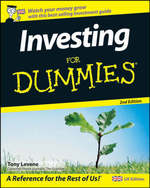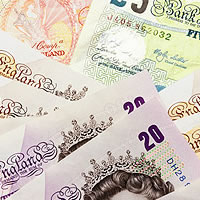We get many enquiries asking about the different rules relating to ISA’s (Individual Savings Accounts) so I thought I would put together a quick article detailing the main points. There are many other articles on ISA’s elsewhere on shrewdcookie.com.

What is an ISA?
An ISA (Individual Savings Account) is a tax-efficient form of investment. It is tax-efficient in terms of there being no liability to income tax on any income received or capital gains tax on any gains you make.
An ISA will be included in calculating your Estate value for probate and inheritance tax purposes.
What different types of ISA are there?
There are two types of ISA:
1. Cash ISA – this is a savings/deposit account on which interest is paid tax-free.
2. Stocks and Shares ISA – this is an ISA which invests in a fund(s) which themselves invest in stocks and shares.
There are thousands of funds to choose from. Self-select ISA’s allow you to choose your own investment funds. An ISA through an IFA or other adviser can also be invested in if you are not happy to choose your own investment funds.
How much can I invest?
This depends on your age – if you’re going to be 50 or over before 5th April 2010 then you can invest:
1. Up to £10,200 in a Stocks and Shares ISA.
2. Of this £10,200 limit, up to £5,100 can be invested in a Cash ISA (with any unused allowance being available for a Stocks and Shares ISA). E.g. if you put £4,000 into a Cash ISA you can put £6,200 into a Stocks and Shares ISA.
If you’re aged below 50 then you can invest the following:
1. Up to £7,200 in a Stocks and Shares ISA.
2. Of this £7,200 limit, up to £3,600 can be invested in a Cash ISA (with any unused allowance being available for a Stocks and Shares ISA).
After 6th April 2010 everyone can invest up to the £10,200 limit.
Can I Transfer from one ISA provider to another?
Yes – approach the company to whom you wish to transfer to arrange this. Under no circumstances surrender the ISA – you will lose the tax-efficient benefits!
The ISA must be transferred between the providers.
If I transfer an “old” ISA does this use my current years ISA allowance?
No
Can a husband and wife have their own ISA’s?
Yes, everyone aged over 18 has there own personal ISA allowance.
If I take out a Cash ISA and a Stocks and Shares ISA do they have to be with the same provider?
No. You can have a Cash ISA with your bank or building society AND a Stocks and Shares ISA with a separate investment house.
Is there any risk involved?
Cash ISA – generally no – if the bank or building society were to go into “default” then you should be covered by the Financial Services Compensation Scheme (FSCS). In terms of returns, there is no volatility involved as this is purely a deposit/bank account.
Stocks and Shares ISA – these do carry risk – the level of risk will depend on the fund you invest in – some funds are riskier than others. With Stocks and Shares ISA’s you should ideally be investing for the medium to long term (minimum 5 years, preferably 10+). The value of the underlying shares can fall as well as rise, as has been seen over the last few years in the UK and world stock markets.
More information on the compensation schemes can be found at FSCS – please note you cannot claim on the FSCS if your plan falls in value!!!
If you have any comments or questions please let me know in the comments section below.
Remember though – we don’t give financial advice on this site!
 We are now well into the 2015/16 tax year and there are a few changes to ISAs which you need to be made aware of….
We are now well into the 2015/16 tax year and there are a few changes to ISAs which you need to be made aware of….
